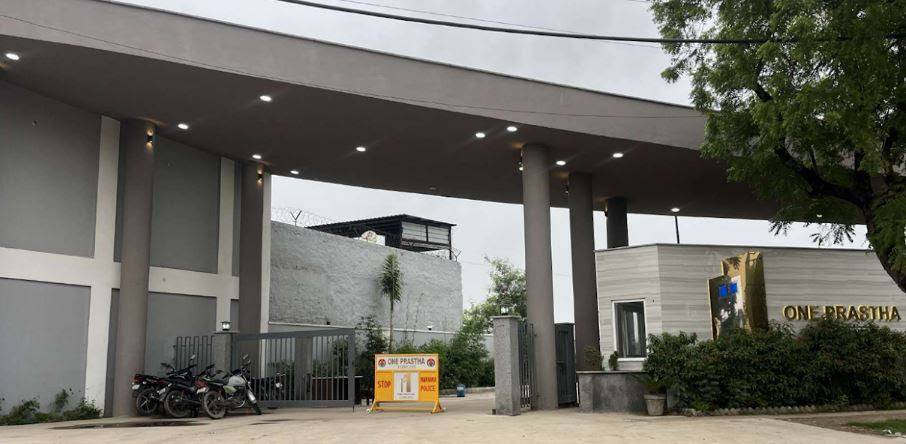The Real Estate (Regulation and Development) Act, 2016 (RERA), is primarily designed to protect homebuyers and ensure transparency in the real estate sector. While it is often associated with residential developments, RERA also applies to commercial projects under specific conditions. Legal experts clarify that commercial real estate falls under the purview of RERA when units are intended for sale rather than lease.
Application of RERA to Commercial Projects
RERA mandates that new commercial projects can only begin construction after obtaining necessary approvals. Developers must also register their projects with RERA before advertising or selling them. According to legal expert Reynold D’Souza, RERA defines real estate as ‘property,’ making commercial projects eligible for registration if they meet the criteria.
Commercial projects covering an area of 500 square meters or more must be registered under RERA. Similarly, any project—whether residential or commercial—with eight or more units is required to be registered. However, if a developer intends to lease the units instead of selling them, RERA registration is not mandatory. In cases where some units are sold while others are leased, the project must still be registered under RERA.
Recent RERA Ruling on a Commercial Project
A recent ruling by Karnataka RERA (KRERA) directed a developer to refund ₹57 lakh to a buyer after failing to complete and hand over a commercial project. The project in question, PVR Pinnacle, developed by Vikram Structures in Hebbal, Bengaluru, was supposed to be completed before 2022 but remained unfinished. KRERA’s decision was based on Section 18 of the RERA Act, which states that if a developer does not complete a project or fails to deliver possession on time, they must refund the buyer’s payment along with interest and compensation.
This ruling underscores the role of RERA in ensuring that commercial real estate buyers have legal recourse when projects are stalled or delayed beyond the agreed timeframe.
Key Considerations for Commercial Real Estate Buyers
Investors interested in commercial real estate need to take several precautions before purchasing units. Experts recommend verifying the project's RERA registration, as developers cannot legally sell under-construction units in unregistered projects. Buyers should also check whether the necessary approvals have been obtained for construction.
Legal expert Akash Bantia emphasizes the importance of checking for any ongoing litigation related to the project land, as disputes over ownership and clearances often lead to significant delays. Additionally, buyers should verify the carpet area and ensure that the undivided share (UDS) of land is correctly mentioned in legal documents. UDS refers to the portion of the total land that each buyer collectively owns in a shared property, including common areas such as staircases and amenities.
RERA Jurisdiction in Commercial Real Estate: What Buyers Should Know
Buyers of commercial properties can approach the RERA Authority for disputes related to ownership transfer. Since RERA covers all real estate transactions that involve a change in ownership, commercial property buyers can seek legal remedies under the Act. However, experts caution that judicial interpretations of certain provisions may evolve as more cases arise.
While RERA provides a structured mechanism for resolving disputes, commercial real estate transactions often involve additional legal complexities. Some disputes, particularly those related to contractual obligations, may be handled through civil litigation, the National Company Law Tribunal (NCLT), or private arbitration. Civil litigation can take a decade or more, whereas RERA orders are generally issued within a shorter timeframe.
One limitation of RERA is that it does not cover disputes arising from leased commercial properties. Since leasing does not involve a transfer of ownership, such conflicts fall outside RERA’s jurisdiction.
Loopholes and Developer Practices
Legal experts point out that some developers exploit loopholes in the Act to avoid RERA registration. In certain cases, developers claim they intend to lease commercial properties rather than sell them, thereby bypassing RERA regulations. However, some of these properties are later sold after completion, by which time the project no longer falls under RERA’s purview. Instances where well-known developers have used this approach to evade compliance. In such cases, buyers may face difficulties in seeking legal remedies through RERA. This reinforces the need for investors to conduct thorough due diligence before committing to commercial real estate purchases.
RERA serves as an important legal framework for commercial real estate buyers when projects are delayed or remain incomplete. While the Act applies to commercial developments that involve unit sales, leased properties remain outside its scope. Investors must verify a project's registration status, approvals, and legal clearances before purchasing commercial units.
Image source- vspl.org









.png)